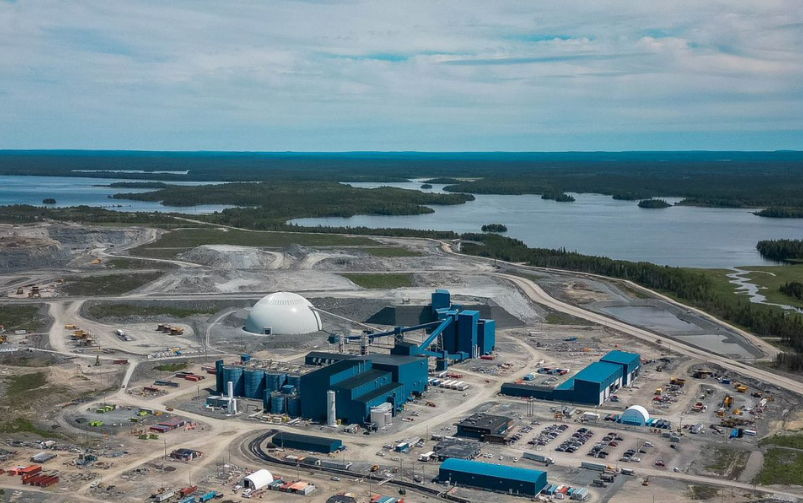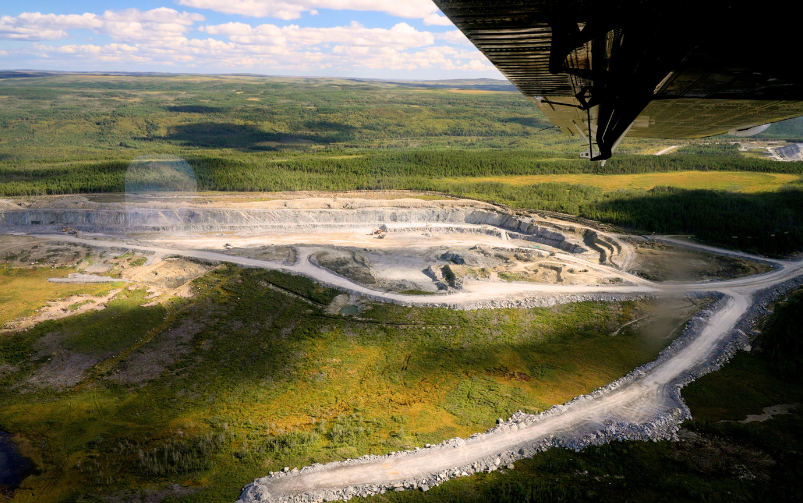If all goes according to plan, Wyloo Canada would send nickel from its proposed Eagle’s Nest mine in Ontario to its proposed downstream battery materials facility in Sudbury. Courtesy of Wyloo Canada.
Welcome back to your weekly mining news recap, where we catch you up on some of the news you may have missed. This week’s headlines include the launch of a new battery electric vehicle project from Zero Nexus, the threat of a strike at Taseko’s Gibraltar mine in B.C. and another retraction of assay drilling results in May from a second Ontario gold exploration company.
After BHP’s three offers to acquire its rival Anglo American were rejected, the mining giant is walking away from the deal, as reported by Reuters. Following Anglo’s refusal to offer BHP an additional extension to figure out logistics related to a deal that would require Anglo to spin off its South African assets, BHP decided to withhold its binding bid for the company. Now BHP must wait six months before it can make another offer due to U.K. takeover rules, unless another party makes a bid in the meantime.
Wyloo Canada announced on Wednesday that it plans to construct Canada’s first downstream battery materials processing facility in Sudbury. The facility would produce low-carbon nickel sulfate and nickel-dominant pCAM, two ingredients that are crucial for the production of electric vehicle batteries. Nickel for the facility would come primarily from the company’s proposed Eagle’s Nest mine, located in the Ring of Fire region of Ontario.
US$300 million in debt financing has been conditionally approved by Export Development Canada (EDC) for Australian-listed company Arafura Rare Earths and its Nolans project in Australia, as reported by Reuters. When completed, the project will be Australia’s third rare earths processing plant. It was estimated in November 2022 to cost around US$1.05 billion. The funds come from EDC as a means of supporting the Nolans project, which is linked to a nonbinding memorandum of understanding with GE Renewables and supply contracts from some Canadian companies.
A new project developed by Zero Nexus, a Canadian research company focused on sustainable mining solutions, aims to identify the challenges and opportunities that come with the widespread adoption of battery electric vehicles (BEVs) in the mining industry and offer extensive guidance on how to operationalize BEVs in the industry. The Electric Vehicles in Mining Operations (EVMO) project was officially announced on Wednesday at the BEV In Depth: Mines to Mobility conference in Sudbury.
A union acting on behalf of 550 workers at Taseko’s Gibraltar copper mine in B.C. has announced that strike action is imminent if demands for improved wages, refined safety protocols and fair treatment are not met by the end of Friday, when the collective agreement expires, as reported by The Canadian Press. The union stated that Taseko has yet to offer weighty proposals during the negotiation period. According to the union, 98 per cent of workers have voted in favour of a strike if conditions are not met by the deadline.
MacDonald Mines Exploration is the second Ontario-based gold exploration company to retract drill assay results in the span of a month, as reported by Northern Ontario Business. The company has withdrawn all of the results it had initially included in documents released to the public, such as press releases and technical reports, and has launched an internal review to compare the actual assay results with the ones made available to the public. Earlier this month, Red Pine Exploration retracted assay results for its Wawa gold project and accused its former CEO Quentin Yarie of tampering with assay results. Yarie left the company in February 2024 and also previously worked at MacDonald Mines from October 2020 to August 2022. MacDonald Mines did not mention Yarie in its announcement.
On Wednesday, the Biden administration proposed that it will extend tax credits that have supported U.S. projects centred on solar and wind energy to incorporate a broader array of clean energy technologies, as reported by Reuters. Technologies eligible for the tax credits would include nuclear fission and fusion, as well as hydropower and geothermal energy.
BHP and Rio Tinto are joining forces with heavy equipment manufacturers Caterpillar and Komatsu to test out large battery-electric haul trucks at the miners’ independent Pilbara operations in Australia, as reported by Engineering News. During the latter half of this year, BHP will receive two Caterpillar AT 793 trucks, while in 2026, Rio Tinto will get two Komatsu 930 trucks. Results of the trials will be shared between the two mining giants in an effort to reduce carbon emissions and help reach net-zero targets by 2050.
Once its deal to purchase Teck Resources’ coal mines is finalized later this year, Glencore will consult with its shareholders on if it should spin off its coal assets, which are a big earner for the company, as reported by Bloomberg. Glencore shared that if most of its shareholders are in favour of keeping coal, Glencore will not move ahead with voting.
That’s all for this week. If you’ve got feedback, you can always reach us at editor@cim.org. If you’ve got something to add, why not join the conversation on our Facebook, Twitter, LinkedIn or Instagram pages?




